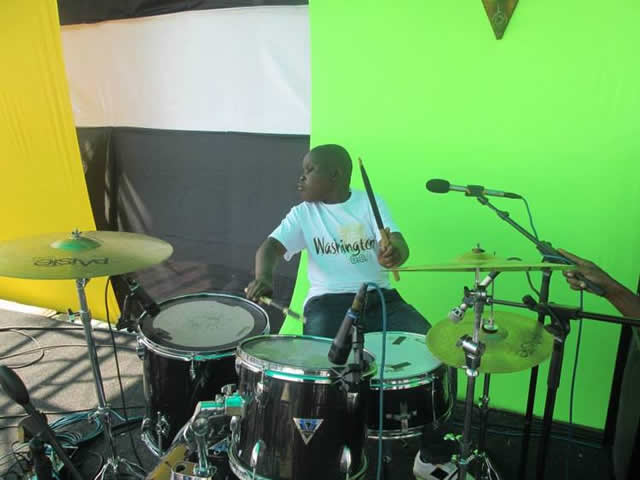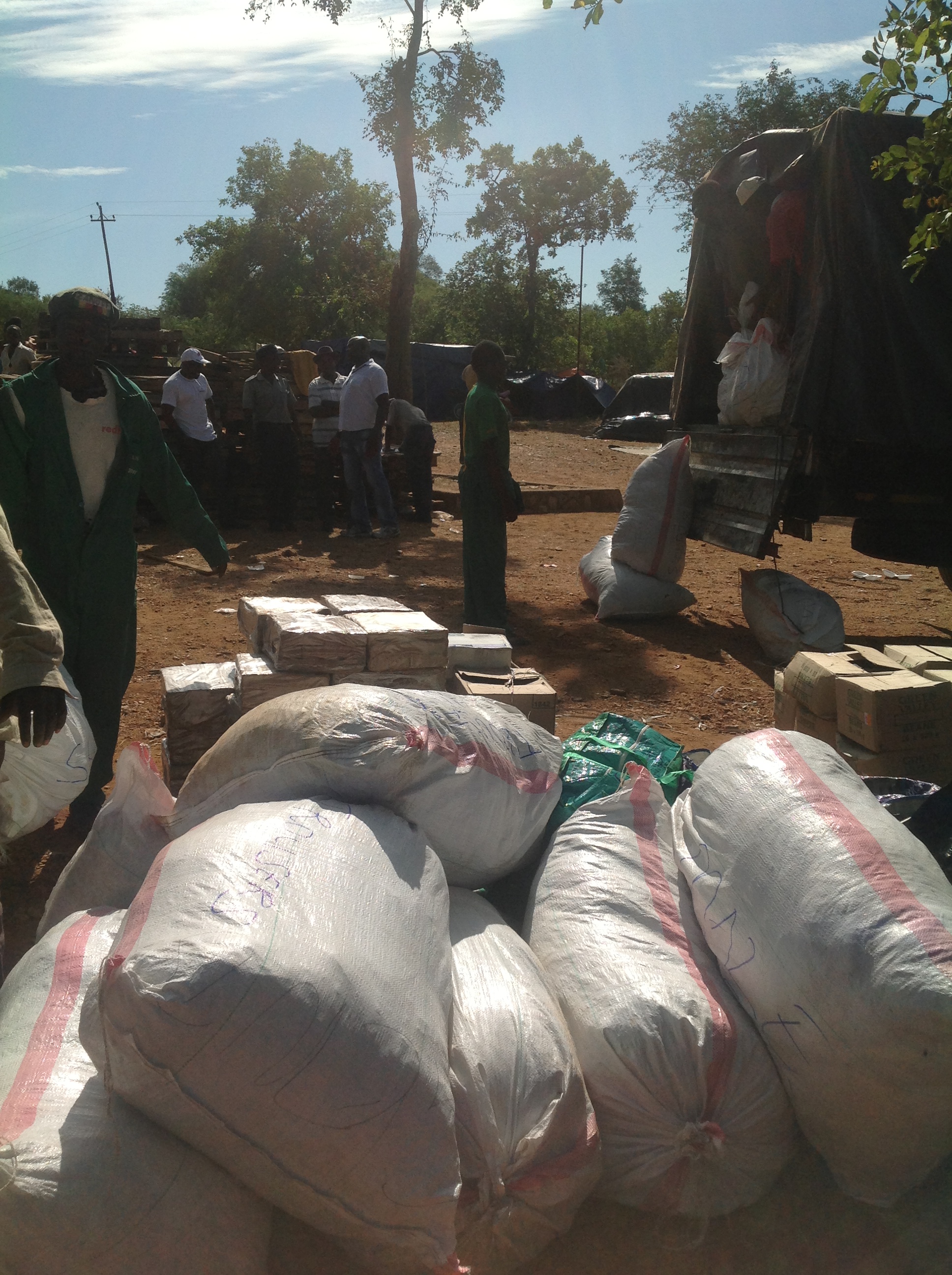Harnessing ability from disability

Stanely Mushava : Features Correspondent
It may be seldom acknowledged but every creative and intellectual domain has been memorably impacted on by a large-than-life genius living with disability. There is a persistent debate, not without merit, on whether John Milton or William Shakespeare is the king of English literature. The debate, running in books, academic papers and newspaper articles, and more recently staged by Intelligence Squared Debates, has not been swayed in the least by Milton’s visual impairment.
Although he dictated all his masterpieces when he was already blind, most writers are still to match his mastery of image.
Science mega-star Stephen Hawking set about the work for which he is universally acknowledged when he was already challenged by motor neuron disease.
A biographer suggests Hawking’s extraordinary ability to break down complex physics to accessible mental images set in as compensation for his disability.
Culture’s greatest ironies include the fact that one of the greatest music composers of all time, Ludwig Beethoven, was deaf.
International icons who have risen above the stereotypes of disability include mathematician John Nash, a victim of schizophrenia; musician Steve Wonder, who is visually impaired; and political activist Hellen Keller, who was deaf and blind.
Zimbabwe’s hall of fame features icons from several disciplines, including highly regarded former television presenter Godfrey Majonga, multi-award winning athlete Eliot Mujaji, side-splitting musician Paul Matavire and political scientist Prof John Makumbe.
Government has been creating enabling spaces for students with disabilities to maximise their potential, including the reservation of seats for a male and female representative of people living with disabilities in Parliament.
The Ministry of Primary and Special Education has also placed emphases on special education in its teacher capacitation programme under the new curriculum.
Zimbabwe has a number of special schools tailored exclusively for students living with disabilities, but there is trending emphasis on capacitating teachers and developing infrastructure for the children to successfully integrate in any school.
Government efforts are being complemented by special schools’ initiatives to promote excellence across disciplines including arts and culture.
Special educator, creative writer and coordinator of the Special Schools Arts Festival, Trust Mutekwa, told Herald Review that schools across the nation must create platforms to explore abilities and talents in children with disabilities.
“Research findings reveal that most children are deprived of socialisation and lag behind in arts and recreation when their counterparts from the mainstream schools engage in activities like drawing, crafts, drama, concerts, choral and traditional dances,” Mutekwa said.
“In families, children with disabilities are usually left out from mainstream activities like church services, wedding ceremonies as well as other social or family festivities,” he said.
However, the unjust discrimination is sometimes as blessing in disguise as multi-talented children with disabilities explore and excel in particular skills when they are left at home as families travel.
Mutekwa said it is the role of schools to create platforms for the exposure and fine-tuning of this raw talent.
Known in literary circles as Ticha Muzavazi, Mutekwa has contributed to this ideal by taking part in the establishment of Special Schools Arts Festival.
The initiative by Giles Special School is meant to bring together on a yearly basis children with disabilities from around the country to encourage them to excel in the areas of their gifting.
The latest edition of the festival was held on Saturday at Giles where Mutekwa, a University of Zimbabwe graduate in visual impairment, teaches music.
Prudence Mabhena travelled from Mutare to inspire the children. Tanyaradzwa Gondo, who defies visual impairment to excel in information and information technologies and various musical instruments, also participated.
The festival, which has been running since 2012, annually convenes disabled children to showcase their artistic skills as well and prime them for achievement through motivational sessions by accomplished persons living with disabilities.
“When we began teaching music at Giles Special School in 2008, the children became participants in mainstream events like arts festivals, musical concerts and competitions. The first group of mbira players at St. Giles hosted local and international musicians,” Mutekwa said.
“They opened shows for musicians like Victor Kunonga and Chiwoniso Maraire. In 2010, they recorded an eight-track musical album,” he said.
However, the initiative was impeded by lack of continuity for students groomed at the school as some of the schools to which they graduated lacked initiative in promoting the arts.
The festival was organised for the purpose of coordinating promotion of the arts by all special schools in the country.
Mutekwa said Zimbabwe need an arts equivalent for platforms such as the Paralympic, Special Olympics and Danhiko Games, all meant to showcase sporting talent among the disabled.
Article 30 of the UN Convention on the Rights of Persons with Disabilities provides that people with disabilities should take part on an equal basis with others in cultural life and enjoy access to cultural material, access to television programmes, films, theatre and other cultural activities.
“In articles 3 and 31 of the Convention on the Rights of the Child, we are encouraged to work towards what is best for each child since all children have a right to relax and play, and to join in a wide range of activities,” Mutekwa said.
“Children are playful in nature and, art is regarded as pivotal in development and therapy especially in various health and disabling conditions. Furthermore Article 7 of the UNCRPD provides that we take all necessary measures to ensure the full enjoyment by children with disabilities,” he said.
Mutekwa, said Zimbabwe, which ratified the article in 2013, must stretch its effort beyond the paper and create sustained platforms for the development of talent.
The Special Schools Festival has sourced material for establishment of vibrant arts initiatives.
Mbira units have been sent to some of the special schools and a series of training sessions have been conducted on running sustained arts initiatives.
Mutekwa said the young musicians from his school have participated in events like commemorations of the Women’s Day, Culture Week, Musicians Day, District and provincial award ceremonies in the education sector and the World Children’s Festival held in Washington DC last year in addition to partnering other arts organisations like Victor Kunonga’s Hatiite Project and Jikinya Traditional Dance.
“Most of our children who participate in arts make it in academics. Some of our children also become established artists. For example, John Munodawafa, who was in Form 2 when the initiative started recorded an eight-track album, ‘Ndidzivirei’ about the same time he was waiting for graduating to A’ Level,” Mutekwa said.
The special educator, however, bemoaned lukewarm appreciation of issues affecting children with disabilities in other sections of society, with mostly teachers and parents being concerned.
“We seem to have a society with leaders and decision makers who are too busy for children and disability issues. We wish to get government and corporate commitment in arts activities for children with disabilities in the same manner they engage themselves in mainstream schools arts and sporting,” Mutekwa

Resourcing every visually impaired pupil with a computer is a significant step towards equal opportunity
said.
The new curriculum features subjects in expressive arts from Early Childhood Development (ECD) to Advanced level. The move has been lauded by critics as a step towards identifying and maximising talent at the most strategic stage in human development.
Mutekwa lauded the step and said it must be particularly mainstreamed in special schools for therapy and sustenance of livelihoods.
He cited the example of Munodawafa who is already selling his music while studying for his Advanced Level and visual artists from special schools who occasionally exhibit at the National Gallery.
“The earlier generations of disabled students are in dozens within a kilometre radius of Copacabana in town. I do not think that is in line with the ‘Decent Work for Persons with Disabilities’ as stipulated in 2007,” Mutekwa said.
“Challenges faced by children with disabilities are on various levels, often revolving around costs and poverty. This usually affects their health, education, interaction, happiness and general well-being.
“Children with disabilities, in most cases, do not attend school in their neighbourhoods. Some disabled children stay away from families or travel long distances and odd hours to spend 5 to 6 hours at a special school.
“It is clear that the lifestyles are stressful. Some families break because of disability of a child.
“There are emotional issues here. These problems can be alleviated through the coordination of various sectors,” he said.
Special schools are two years into their campaign for “A Computers For Every Blind Child” which they say will bring visually impaired students closer to equal opportunities with the rest of their peers.
Susan Lynn Gabel and Scot Danforth urge for a shift in media reports from running pejorative stories about disabled people, while praising “generous donors” and saviours.
Across the world, there is emphasis on ensuring equal opportunities for employment to reverse years of prejudice against people living with disabilities.
Feedback: [email protected]










Comments